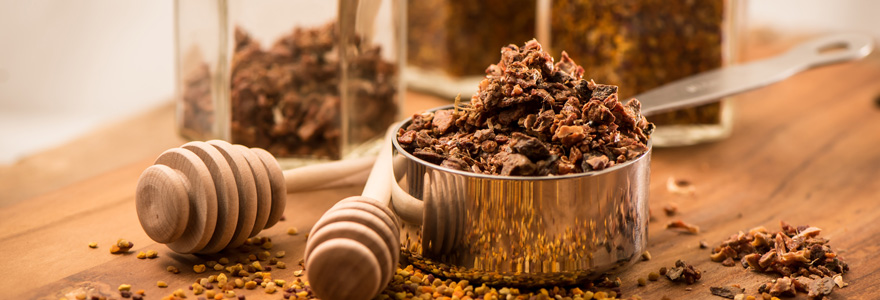
Propolis is a sticky resin that is produced by bees. It is used to line the hive and helps to protect the bees from bacteria and other invaders. Propolis has antimicrobial, antiviral, and anti-inflammatory properties. It is also a powerful antioxidant.
What is propolis?
Propolis is a sticky substance that bees make from tree resin. They use it to repair their hives and as a defense against predators and disease.
Scientists have identified more than 300 compounds in propolis, including flavonoids, terpenes, and phenols. These compounds give propolis its antibacterial, antifungal, and anti-inflammatory properties.
Propolis is available in many forms, including the tablet with propolis from LES 3 CHENES, capsules, tinctures, creams, and ointments. You can also find it in some foods and beverages, such as honey, candy, and tea.
Some people use propolis to treat skin conditions, such as eczema and psoriasis. It is also used as a natural treatment for cold sores, sore throats, and toothaches.
Propolis is generally considered safe. However, some people may be allergic to it. If you experience any side effects, such as itching, swelling, or difficulty breathing, stop using propolis and see your doctor.
What are the benefits of propolis?
Scientists have found that propolis has antibacterial, antifungal, and antiviral properties. It also contains antioxidants and other compounds that may boost the immune system.
Propolis is available in many forms, including liquids, tinctures, capsules, and ointments. People can use it to treat minor wounds, skin conditions, and sore throats. Some people also take propolis supplements to help prevent colds and the flu.
Medicinal properties
It has been used medicinally for centuries and is thought to have antibacterial, anti-inflammatory, and antifungal properties.
Propolis is made up of a mix of beeswax and plant resin. The plant resin is thought to be the active ingredient in propolis. The resin is made up of a mix of compounds, including flavonoids, terpenes, and phenolic acids. These compounds are thought to have antioxidant, anti-inflammatory, and antimicrobial properties.
Propolis is most commonly used in the form of a tincture, which is made by soaking propolis in alcohol. It can also be made into a cream, ointment, or suppository.
Propolis is generally considered safe, but it can cause allergic reactions in some people. If you're allergic to bee stings, you're more likely to be allergic to propolis. If you're allergic to propolis, you should avoid it.
How to use propolis
Humans have used propolis for centuries as a folk remedy for a variety of ills, including colds, infections, and inflammations.
Recent studies have shown that propolis has antibacterial, antifungal, and anti-inflammatory properties. It also contains antioxidants that can help protect cells from damage.
Propolis is available in various forms, including tinctures, extracts, capsules, and ointments. You can apply it directly to the skin or take it orally. When using propolis topically, be sure to dilute it with a carrier oil, such as olive oil, as it can cause irritation.
If you're interested in trying propolis, talk to your doctor first, as it can interact with some medications.
Propolis is a natural antibacterial and antifungal agent that helps to protect the hive from disease. Propolis also has anti-inflammatory and healing properties.